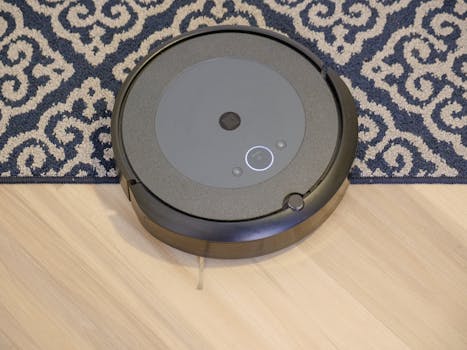
AI-Powered Gadgets: Transforming Everyday Life by 2025
Takeaways: By 2025, AI-powered gadgets will redefine how we interact with technology, making our lives more efficient and convenient. From smart home devices to wearables, these innovations promise to enhance our daily routines and improve personal productivity.
Artificial Intelligence (AI) is no longer a futuristic concept; it’s here, and it’s transforming our everyday lives. By 2025, we can expect a surge in AI-powered gadgets that will not only enhance our efficiency but also make our lives more enjoyable and interconnected. In this article, we will explore several categories of AI gadgets that are poised to revolutionize our daily routines.
Smart Home Devices
One of the most significant impacts of AI is in the realm of smart home technology. With devices becoming increasingly interconnected, our homes will transform into intelligent ecosystems that learn and adapt to our habits.
Imagine your home waking up with you. As you get out of bed, your smart thermostat adjusts to your preferred morning temperature, your coffee maker starts brewing your favorite blend, and the lights gradually brighten to mimic a natural sunrise. AI-powered smart home devices will not only automate these tasks but also learn from your routines to provide a tailored experience.
By 2025, we can expect to see advancements in voice-activated assistants like Amazon Alexa and Google Assistant. These devices will become more intuitive, managing everything from grocery lists to security systems. Integration with other smart devices will allow for seamless control over your home environment, enhancing both security and comfort.
Moreover, AI will enable better energy management in our homes. Smart meters and AI algorithms will analyze energy consumption patterns, suggesting ways to reduce waste and save on bills. This technology will not only promote sustainability but also empower homeowners to make informed decisions about their energy use.
Wearable Technology
Wearable technology is another area where AI is making significant strides. By 2025, we will see smartwatches and fitness trackers equipped with advanced AI capabilities, providing personalized health insights and recommendations.
Imagine a wearable device that monitors your health in real-time, analyzing your heart rate, sleep patterns, and physical activity. AI algorithms will process this data to offer tailored fitness plans, dietary recommendations, and even mental health support. This level of personalization can lead to improved well-being and proactive health management.
Furthermore, AI-powered wearables will likely incorporate features that enhance connectivity. For instance, they could facilitate seamless communication with other devices, allowing users to control smart home features directly from their wrists. This integration will make technology more accessible and responsive, fitting naturally into our daily lives.
AI in Transportation
The transportation sector is also on the brink of a revolution, thanks to AI-powered gadgets. By 2025, we can expect significant advancements in autonomous vehicles, ride-sharing applications, and traffic management systems.
Self-driving cars are becoming a reality, with AI systems capable of navigating complex environments and making real-time decisions. These vehicles will not only enhance safety but also improve efficiency by optimizing routes and reducing traffic congestion. Imagine a world where you can work or relax during your commute, thanks to AI technology taking care of the driving.
In addition to personal vehicles, AI will play a crucial role in public transportation. Smart public transit systems will use AI to analyze ridership patterns, allowing for more efficient scheduling and routing. This technology will make public transit more reliable and user-friendly, encouraging more people to opt for sustainable transportation options.
Healthcare Innovations
AI-powered gadgets are also set to transform the healthcare landscape by 2025. From telemedicine to smart medical devices, AI will enhance patient care and streamline healthcare processes.
For instance, AI algorithms can assist doctors in diagnosing conditions more accurately by analyzing medical images and patient data. Wearable health monitors will keep track of vital signs and alert healthcare providers in case of anomalies, enabling early intervention and better management of chronic conditions.
Furthermore, AI-driven chatbots will revolutionize patient engagement, providing instant answers to health-related inquiries and guiding patients through administrative processes. This level of accessibility can significantly improve patient experiences and outcomes.
The Future is Here
The rapid advancement of AI technology is set to transform our lives in ways we have yet to fully comprehend. By 2025, AI-powered gadgets will enhance convenience, efficiency, and connectivity in our daily routines. As we embrace these innovations, we can look forward to a future that is not only smarter but also more responsive to our individual needs.



